For engineers, manufacturers, and technical writers, translating text in image files like diagrams, schematics, and flowcharts is a recurring challenge. Generic tools that promise to translate image online often fail with technical content—scrambling layouts, mislabeling parts, or butchering industry jargon.
Visual Paradigm’s AI Image Translator solves this by specializing in structured digital documents, making it the go-to tool to translate text in image files accurately while preserving formatting. Whether you’re localizing machinery manuals for German factories or chemical process diagrams for Japanese partners, this guide shows how to translate image online without compromising precision.
1. Why Generic “Translate Image Online” Tools Fail for Technical Content
The Limits of Free OCR Tools
Most free tools (e.g., Google Lens, online OCR converters) struggle with:
- Technical terminology (e.g., “actuator” mistranslated as “motor”).
- Structured layouts (text overflowing from callouts).
- Multi-language diagrams (incorrectly detecting languages).
Example: Trying to translate text in image files like engineering schematics with free tools often results in:
- Misaligned labels.
- Inconsistent jargon.
- Low-resolution exports.
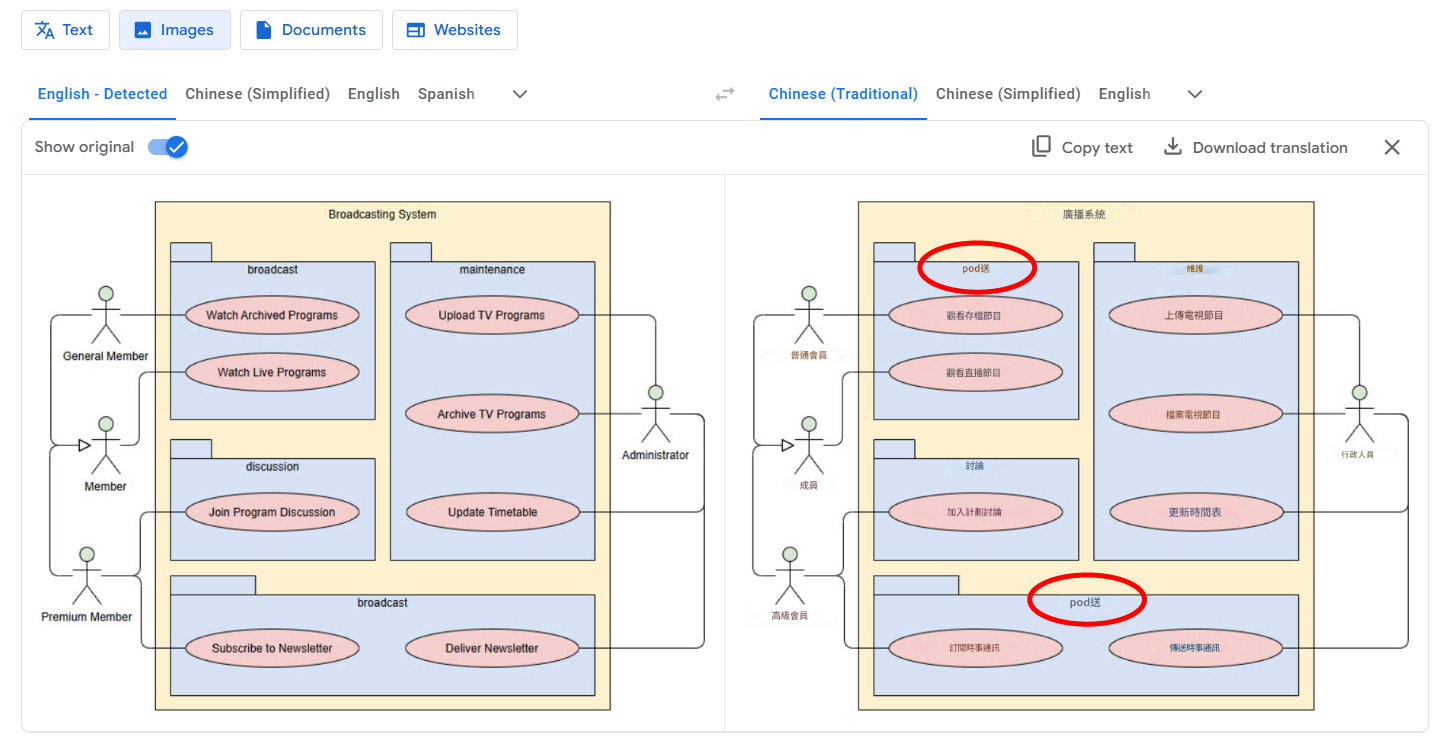
When You Need a Specialized “Translate Text in Image” Tool
Use AI Image Translator if your workflow involves:
✅ Technical diagrams (electrical circuits, UML, BPMN).
✅ Multilingual product labels (ingredient lists, compliance text).
✅ Annotated manuals (safety instructions, assembly guides).
2. How to Translate Image Online with Precision
Step 1: Prepare Your Files
Export diagrams as PNG, JPG, or PDF from tools like AutoCAD or VP Online.
Pro Tip: Use Visual Paradigm’s AI Work Breakdown Structure Generator to auto-generate diagrams from text.
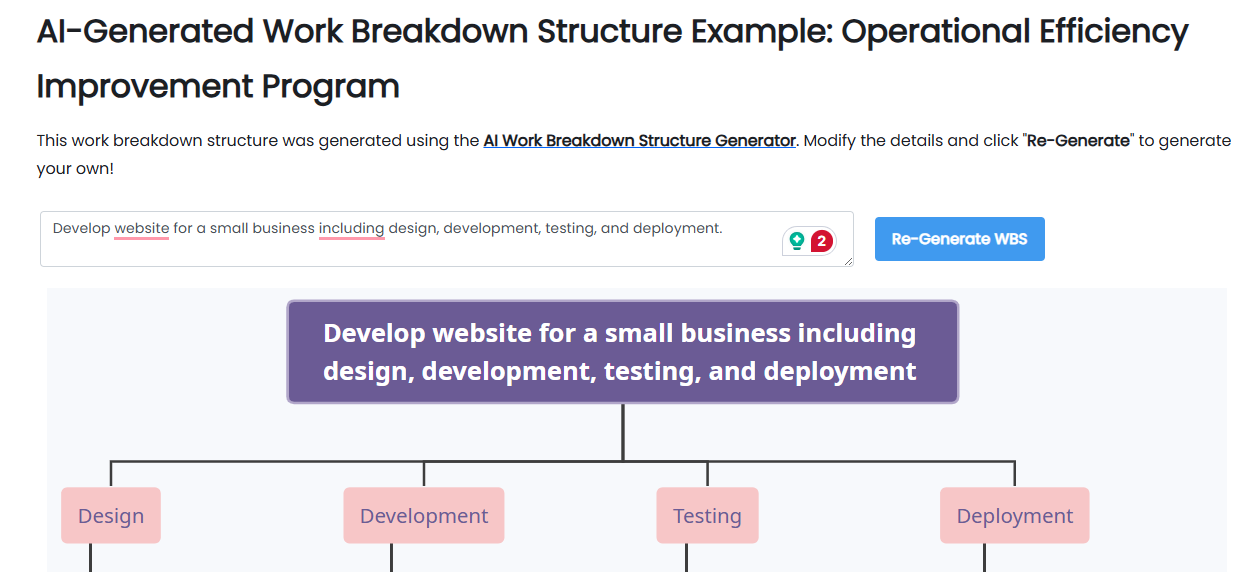
Step 2: Upload to AI Image Translator
Drag files into the AI Image Translator. The tool auto-detects text regions, even in complex layouts.
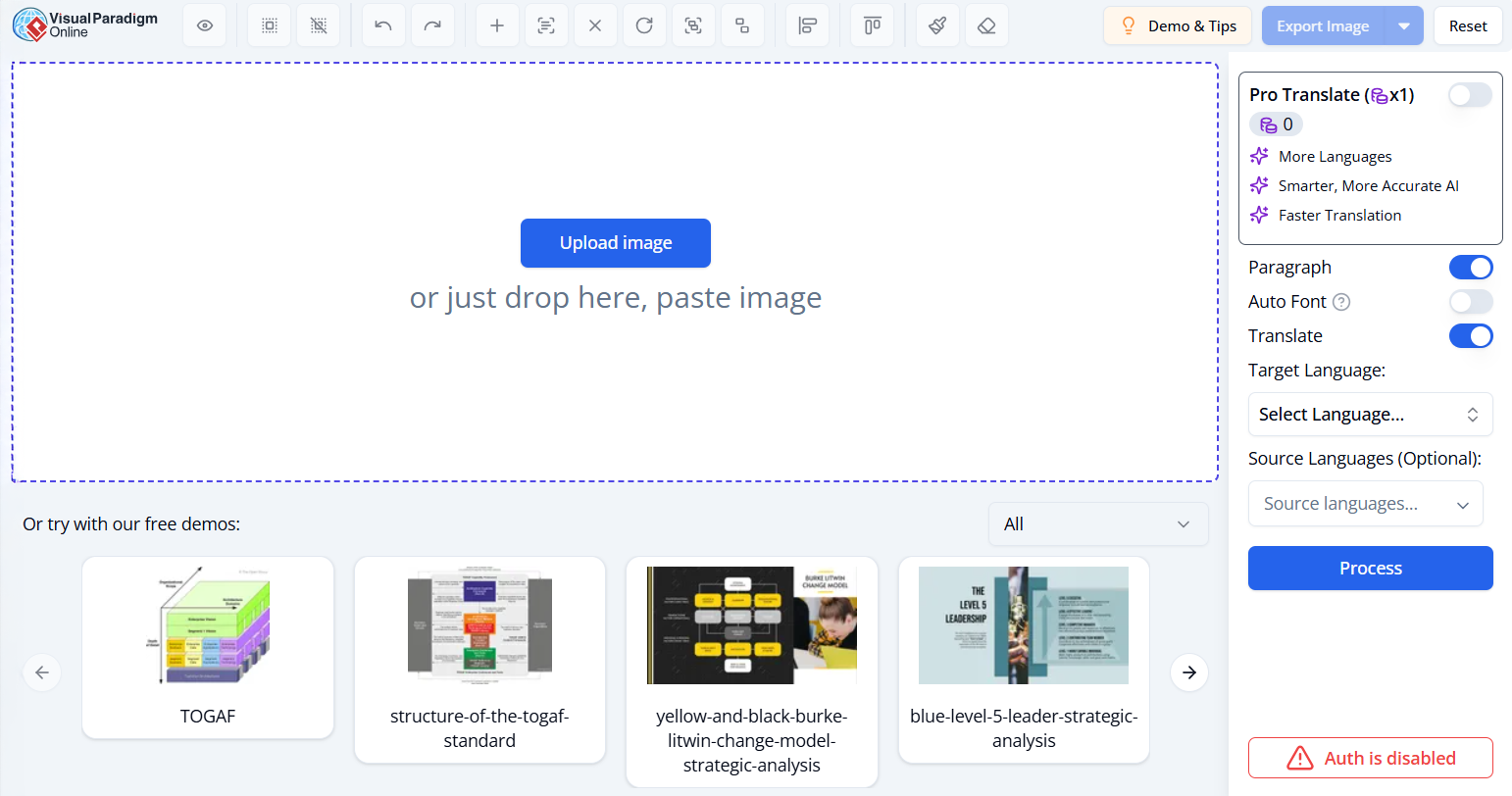
Step 3: Customize Translations
- Select languages (50+ supported).
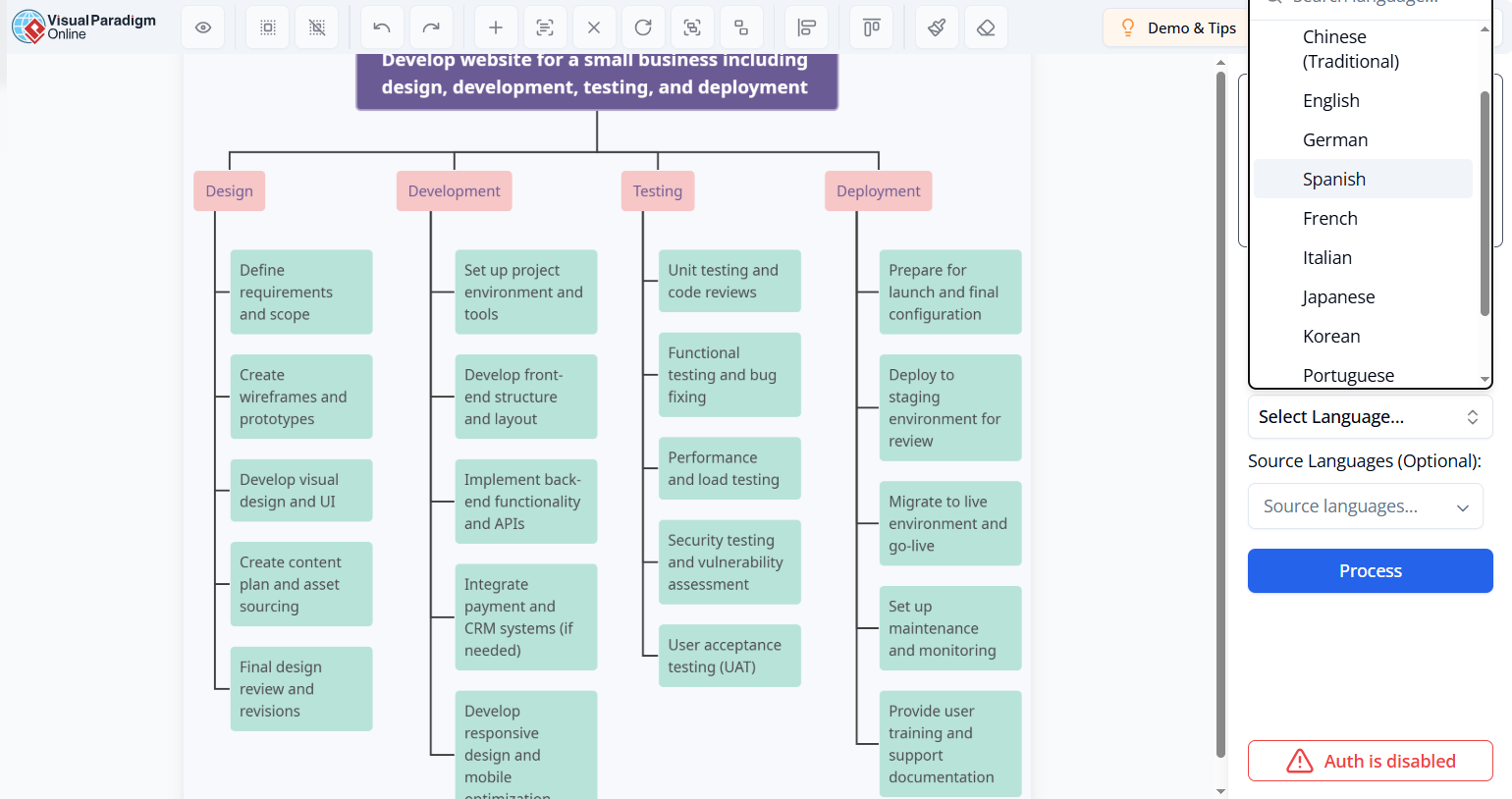
Step 4: Export & Integrate
Download translated diagrams as editable SVG/PPT or print-ready PDF.
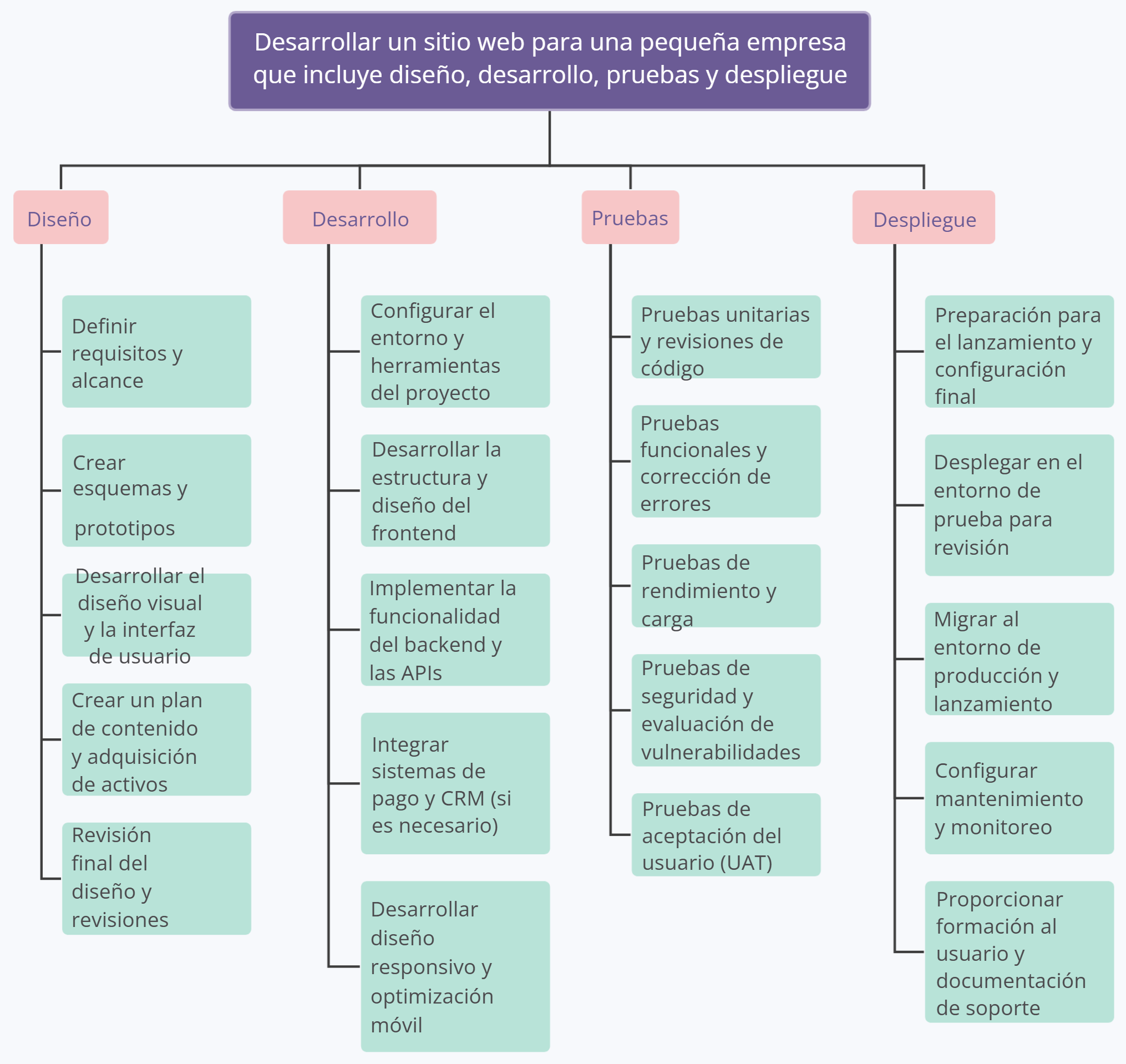
3. Key Benefits of Using AI to Translate Text in Image Files
1. Preserve Layouts, Every Time
Unlike generic translate image online tools, AI Image Translator:
- Keeps text within arrows, callouts, and labels.
- Maintains font sizes and styles.
2. Industry-Specific Accuracy
The tool recognizes niche terminology for:
- Engineering (e.g., “torque,” “hydraulic”).
- Medicine (e.g., “tibia,” “myocardium”).
- Manufacturing (e.g., “tolerance,” “calibration”).
4. Case Study: Translate Image Online for a Multinational Engineering Firm
The Challenge
A robotics company needed to translate text in image files across 300+ assembly diagrams from English to Mandarin. Manual efforts caused:
- Text overflow in callouts.
- Inconsistent terms (e.g., “actuator” vs. “驱动机构”).
The Solution
Using AI Image Translator:
- Batch-translated all diagrams in 4 hours (vs. 6 weeks manually).
- Editable SVG files allowed engineers to tweak icons.
Results:
- 95% fewer errors in translated manuals.
- Faster onboarding for Chinese factory teams.
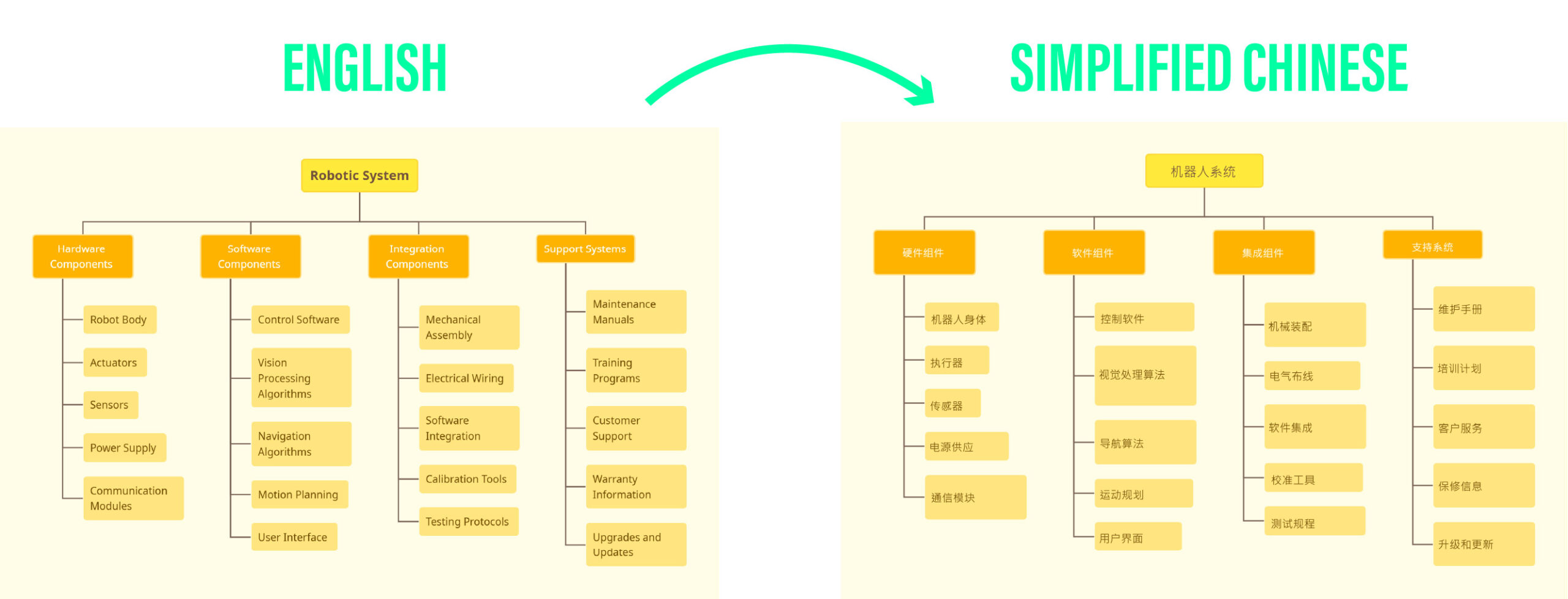
5. Beyond Translation: AI Tools for Technical Teams
Pair AI Image Translator with other VP tools to streamline workflows:
🔹 AI Presentation Maker – Turn translated manuals into training slides.
🔹 AI Chart Generator – Visualize data from translated reports.
6. When to Choose a Specialized “Translate Text in Image” Tool
Invest in AI Image Translator if you:
- Regularly translate image online for technical content.
- Need glossary-controlled translations (medical/engineering terms).
- Require print-ready or editable outputs (SVG, PPT, PDF).
For occasional use, free tools might work—but for precision, specialized solutions save time and reduce risk.
➡ Try the Free Demo: AI Image Translator
